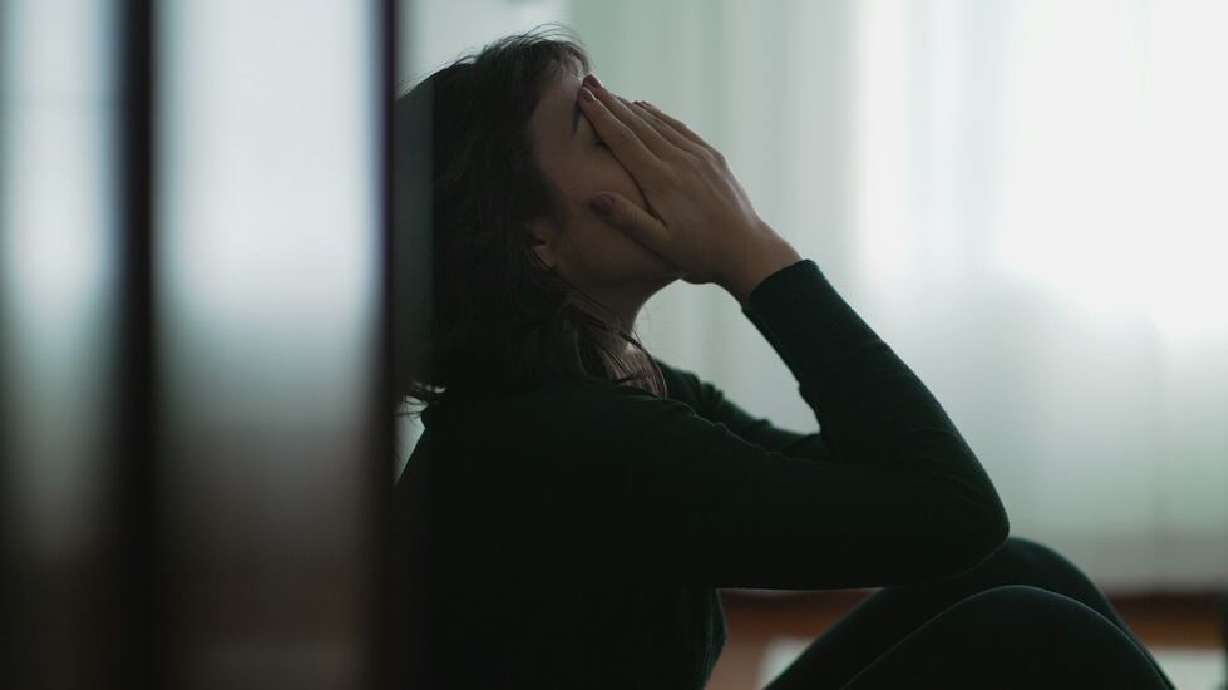Estimated read time: 4-5 minutes
This archived news story is available only for your personal, non-commercial use. Information in the story may be outdated or superseded by additional information. Reading or replaying the story in its archived form does not constitute a republication of the story.
SALT LAKE CITY — Exacerbated by the pandemic, the mental health crisis in America is growing as more and more people admit to having symptoms of anxiety and depression — and at younger ages, according to reports.
"Our nation is facing a mental health crisis among people of all ages, and the COVID-19 pandemic has only made these problems worse," a White House report said last year. "Everyone has someone in their life who is impacted by a mental health disorder or is facing such a challenge themselves."
According to the Centers for Disease Control and Prevention, more than 1 in 5 American adults live with a mental illness, and the same goes for youth. In addition to that, "About 1 in 25 U.S. adults lives with a serious mental illness, such as schizophrenia, bipolar disorder or major depression," the CDC reported.
In Utah, "from Feb. 1 to 13, 2023, 33.3% of adults in Utah reported symptoms of anxiety and/or depressive disorder, compared to 32.3% of adults in the U.S.," the Kaiser Family Foundation said.
Mental health affecting younger ages
Younger generations have shown they are more open to discussing their feelings and see it as a strength to do so, whereas older generations struggle with the idea, saying it would show weakness to share their struggles, per Verywell Mind.
Loneliness is a universal feeling that experts are seeing more often in Generation Z at their current age and have never seen so high in previous generations at the same age. When feelings of loneliness occur more frequently, they can do great damage to one's mental health.
"Loneliness among teens had been slowly declining or at least stable since the early 1990s, but after 2012 it suddenly shot upward," the Deseret News previously reported. "Feeling close social connections to others is crucial for mental health, especially for young people."
Studies have shown that the effects of loneliness and social isolation on health can be as detrimental as being obese or smoking 15 cigarettes daily, with a considerable influence on mental health.
Mental health's effect on gender
It can take time, courage and resilience when taking healthful steps to escape feelings of isolation and loneliness. A recent study by the student exchange organization Educatius found a gender gap in youth resilience.
In an international survey of 4,000 youth ages 16-20 across nine different countries, the research "sheds light on the critical value of resilience — the capacity to recover from adversity and adapt positively to challenging circumstances — and its correlation with various factors such as family, school, peers, community connections, and individual psychological characteristics."
Boys reported higher levels of resilience than girls in most ways, according to the survey. In particular, girls struggled much more than boys when it came to "negative cognition" and "social skills."
The study reported that "52% of girls surveyed agreed with the statement, 'When things go wrong, I tend to give myself a hard time,' versus 44% of boys," and "51% of girls surveyed agreed with the statement, 'I find it hard to make important decisions,' versus 44% of boys."
A CDC report that came out in February of last year found that teen girls are facing record levels of sadness, emphasizing that 3 in 5 teenage girls reported experiencing continuous feelings of sadness or hopelessness in 2021, marking a 60% rise from 10 years prior.
With International Women's Day on March 8, "These findings intersect with the global dialogue on gender equality and the empowerment of women and girls," the Educatius study said.
"The gender discrepancies in resilience in global youth underscore the urgent need to support young girls in developing resilience, a critical value for thriving in a fast-changing world and future," the study added, calling on the attention of policymakers, educators and parents to acknowledge that action needs to be taken to help protect the mental health of youth today.
If you or someone you know is in crisis, please contact the 988 Suicide & Crisis Lifeline by calling or texting 988 or chatting online at 988lifeline.org.










